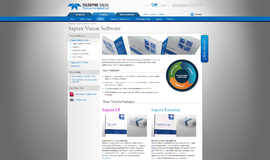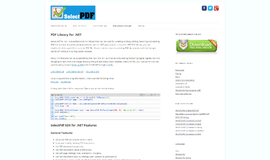Mobile Application Development in 2016
What’s in store for 2016 in terms of Mobile Apps and Mobile App Development? Although the market for mobile app development seems to have reached a plateau since 2012, there are major advancements being made as we speak to encourage a new infusion of interest.
To date, Android and iOS continue to share the major chunk of the market in terms of apps. And there are only a handful of app development companies that seem to be profiting from this niche as we speak.
This is the reason why there has been an upsurge of smaller companies getting bought out by larger corporations. Since these smaller companies have very limited provisions for marketing expenses, there app development is severely compromised. The larger companies on the other hand have the resources to take an existing app, purchase the rights from the original creators and further develop it so it becomes a viable offering in the market.
This has its pros and cons. For one, it allows smaller companies or individuals who are developing apps on their own the opportunity to profit from their own creation. On the other hand, it promotes a monopoly of the more useful apps being offered by only a handful of companies therefore edging out some of the companies that have the potential of creating a good app but choose not to ally themselves with larger entities. This creates a vacuum in the market that could have a negative backlash in terms of pricing and development by year 2018.
For 2016, if all of the items discussed by various app development companies in the various seminars held throughout the year are implemented, then we should be able to pre-empt the total domination of the existing established companies and promote more opportunities for up and coming companies to have a good share in the market.
Cross Platform Development

The two main competitors in the mobile application platform continue to be Apple’s iOS and Android. These two continue to dominate as they are the preferred Operating systems for most of the mobile devices made available to the public today.
Cross platform development continues to be a focus in the creation of mobile apps as one uncontrollable factor in the market is the consumer’s choice based on the platform they prefer. One of the reasons why mobile app development was slow in the past was because developers had to code their work so it could accommodate both Android and iOS platform. Eschewing one in favour of the other would mean having to give up almost 50% of the market share as Android and iOS seem to be sharing equal parts of the major slice in the market.
One solution employed in the past was to create web based apps so there would be no extensive need to develop code for either the Android or the iOS platform. It seemed like a good idea then but it also meant most users had to stay online in order to use it. This presented its own unique issues as most users prefer to stay offline or some may have unreliable internet connections making the app misbehave. This quickly diminished the interest in web based applications so another solution had to be found to address the growing need to have the ability to create code simultaneously for both the Android and iOS platform.
Along with cross platform development is a push for improving app integration to make the bulk of the apps offered in the market today to have some positive impact in the daily usage for the average consumer.
Facebook and Google continue to be the best examples for this as they have effectively created and/or integrated various apps under an umbrella to help their users have access to the content they need. This is the reason why these two companies have aggressively pursued and assimilated smaller companies, effectively absorbing them into their organization so they can perform a specific purpose and integrate them into the whole so there is an effect of having parts of their organization complementing one another with their designated functions. This creates a sense of symbiosis which leads to better consumer satisfaction and brand loyalty as they no longer need to look elsewhere so their needs can be addressed.
Companies should look into creating apps that can be integrated with an existing app from a “competitor” app. More focus should be placed on enhancing the user experience rather than self serving goals. This should help move app development forward in leaps and bounds and foster a sense of community within the app development market between developers.
App Development Tools
The demand for app development in the business world continues to grow so much that there is a huge demand for mobile software engineers today. But then, there are also non-programmers who are looking into getting into the app development market. This has created a very dynamic market and an opportunity has arisen over the years.
Since not everyone is proficient with coding, some developers have made it easier for the normal user to have an opportunity to create an app using an app development tool.
These app development tools range from the very basic to more complex programs that can help you create a simple app or a highly complicated one within the comfort of your own home or inside a designated office focused on creating mobile apps. They have essentially taken away the need to learn a programming language which is what was needed in the past to create an app. Nowadays, there is no longer any need to learn JavaScript, CSS, HTML, XML and other programming languages to create a simple app. All you have to do is use an app development tool and basically just input some very simple functions into the GUI and come out with a simple app at the end of the day.
Still, even if developing mobile apps has become easier through these programs, it shouldn’t be an excuse not to learn the basic programming languages. For the common user, using these app development tools should be a gateway into the mobile app creation world and not the ultimate solution to app creation. After all, should anything go wrong, it helps to be able to look at strings of code and find errors and correct them without having to rely on an app development tool as a crutch.
Here are some examples of App Development Tools that can help the basic end user create an app quickly and with great results:
App Press
This is a web based programming tool that can help first time programmers create apps for both Android and iOS easily. Hard coding with this tool is optional and it can also be used by more experienced app creators to produce more complex apps.
EachScape
This is a cloud based programming tool that employs drag and drop options for first time users to efficiently create apps for both Android and iOS devices.
These two are examples of very easy to use app development tools that are offered to the public for a minimal amount. The features found within these tools should help any first time app developer create an app quickly and with a guarantee of having the best results.
Game Development
Game development continues to be the main focus for most mobile application development companies out there and there is a good reason for that. Based on studies conducted on how people interact with their mobile devices, a high percentage of people use it more often for entertainment rather than for more practical reasons like productivity or communicating via call or SMS. A vast majority of people with mobile devices stay online on most social media platforms and use it as their main form of communication. Another large chunk of this number is people who either play online games or download mobile app games that can be played offline.
Productivity apps are still popular but not as popular as most mobile app games made available on Google’s PlayStore or Apple’s iTunes. This in turn has forced most mobile app development companies to place a high priority on the development of games to include in their portfolio.
There are two ways game developers can make money off of their creations. One is to sell the actual game for as little as $0.99 or release a game with In-app purchases. Out of these two, games offered to the public for free with in-app purchases that users can opt to get or not continue to dominate the market. Case in point: Three of the most popular games offered on mobile platforms are Candy Crush, Clash of Clans and Angry Birds. All three have in-app purchases that users can make use of or ignore as they see fit.
Another direction that mobile gaming apps are heading for is in the 3D territory. As the demand for better hardware and software to be used on personal electronics is becoming the norm, most mobile device manufacturers are coming out with gadgets with the latest innovations in the market.
This in turn has led to developers aiming to capture the market by introducing games that can take full advantage of the new advancements made on the latest mobile devices released into the market.
So, there is still a wide range that any established and new developer can take full advantage of. At this point, any game, regardless of its simplicity or complexity has the potential to capture a sizeable portion of the market if it is promoted in the right manner.
Monetization
One of the main reasons why app development continues to be a lucrative means of creating income is through monetization. This is a double edged sword as it makes money for the developer but is oftentimes a source of irritation for the user. Too many monetization ads in an app can lead to frustration and eventually cause a user to stop using or uninstall the app.
One option these companies give to end users is offering a free version (with ads) and a paid version (without ads). This may seem like a win-win situation but it still leaves people looking for a better solution.
Google and Apple have already identified this issue and are working towards a better way of presenting their ads. Instead of blatant displays, these two companies are now opting for a more subtle way of advertising without being too conspicuous.
In fact, Apple is now developing a code that can totally do away with displaying the ad without removing the monetization factor. In effect, the ad is still there but it is not viewable by the end user and therefore does not cause any obstruction in view as they use the app on their device.
In the same manner, Google has put precedence in using proper ad placement within the app instead of showing banners to have a more seamless manner in presenting their products to the average user. This is still being tested out on a number of apps and it requires proper submission of application forms to Google for authorization (aside from passing the necessary requirements in order to ship out an app on Playstore).
Users should have a better experience with free apps before the end of this fiscal year. We are still in the second quarter and these innovations in terms of monetization are still in the process of being rolled out to the public as we speak.
In conclusion, mobile applications developers should continue to monitor what is happening in the market as any current trend can be utilized and have it developed to its full potential. There are still a vast amount of opportunities in the mobile app development market and it continues to grow.
In esoteric terms, being in tune with what people are mostly interested in is the best weapon in any mobile app developer’s arsenal. Having the ability to identify what people need and then supplying the product that fulfils that demand is still the best way for someone to come up with a successful app.
Although the mobile app development seemed to have plateaued since 2012, putting into effect these new developments could give it that much needed spark to motivate a new upsurge in the market.
Recent Stories
Top DiscoverSDK Experts


Compare Products
Select up to three two products to compare by clicking on the compare icon () of each product.
{{compareToolModel.Error}}

















{{CommentsModel.TotalCount}} Comments
Your Comment